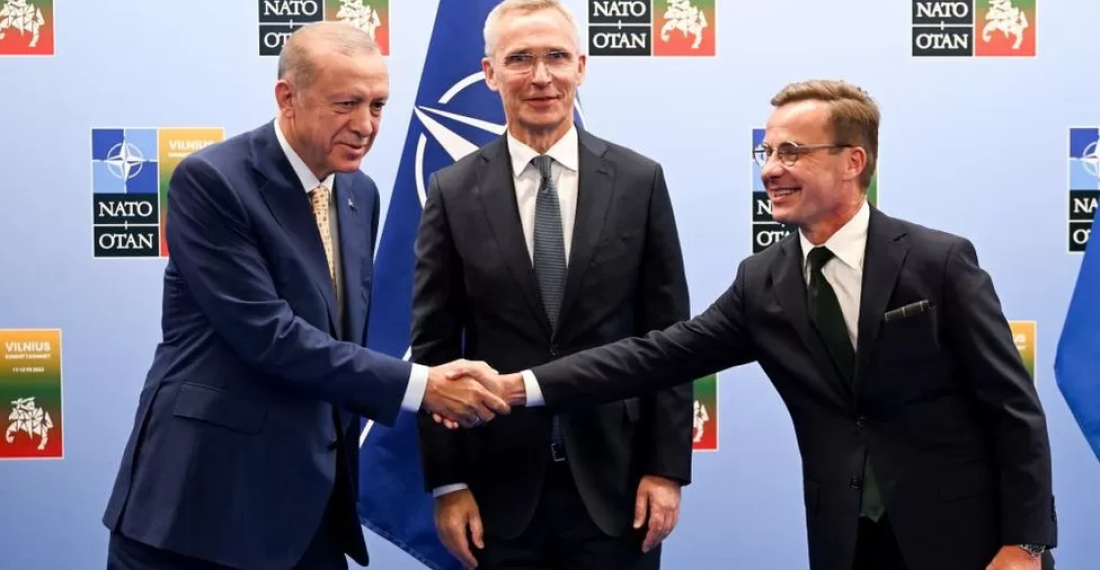The Turkish President Recep Tayyip Erdogan has agreed to Sweden's membership of the North Atlantic Treaty Organization (NATO), hours before the military alliance's summit is due to get underway in the Lithuanian capital of Vilnius on Tuesday (11 July).
The NATO General Secretary Jens Stoltenberg said on Monday evening (10 July) that President Erdogan would forward Sweden's bid to the Turkish parliament in Ankara and "ensure ratification". He described it as a "historic step" but stressed that a "clear date" for Sweden's formal accession to the organisation could not yet be given as this relies on both the Turkish parliament as well as Prime Minister Viktor Orban of Hungary and the Hungarian parliament.
Hungary and Turkey remain the only two NATO members who are not yet to ratify Sweden's membership. Hungarian Foreign Minister Peter Szijjarto said on Tuesday that ratification of Sweden's bid is now "only a technical question".
Reacting to the news, Swedish Prime Minister Ulf Kristersson said: "I am very happy, it is a good day for Sweden." Meanwhile, the U.S. President Joe Biden released a statement saying, "I stand ready to work with President Erdogan and Turkey on enhancing defence and deterrence in the Euro-Atlantic area. I look forward to welcoming Prime Minister Kristersson and Sweden as our 32nd Nato ally".
NATO summit in Vilnius to begin on 11 July
A summit of NATO is to begin in the Lithuanian capital of Vilnius on Tuesday as discussions over Ukraine's path towards becoming a member of the alliance continue.
While it is understood that Ukraine will not be offered candidate status of the alliance, it is expected that some NATO members will promise Kyiv new security guarantees.
The alliance will also deepen its institutional links with Ukraine. An existing forum - the Ukraine Nato Commission - will be upgraded to a Ukraine Nato Council, giving Ukraine the ability to summon meetings of the alliance as an equal partner around the table.






